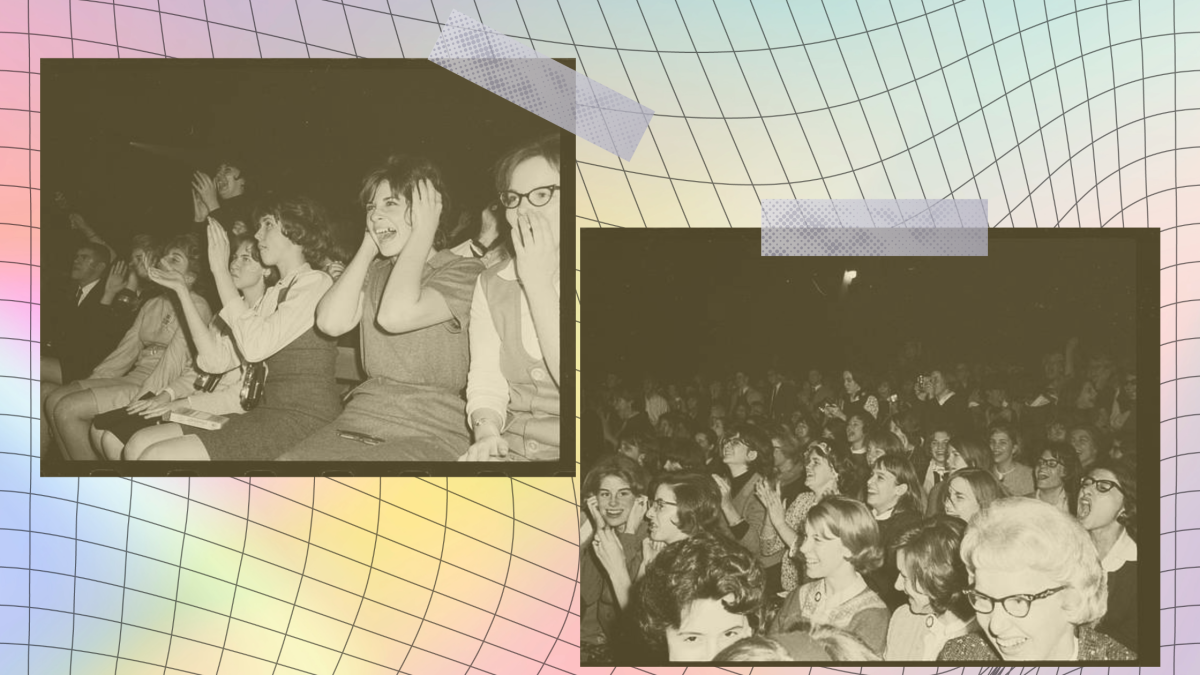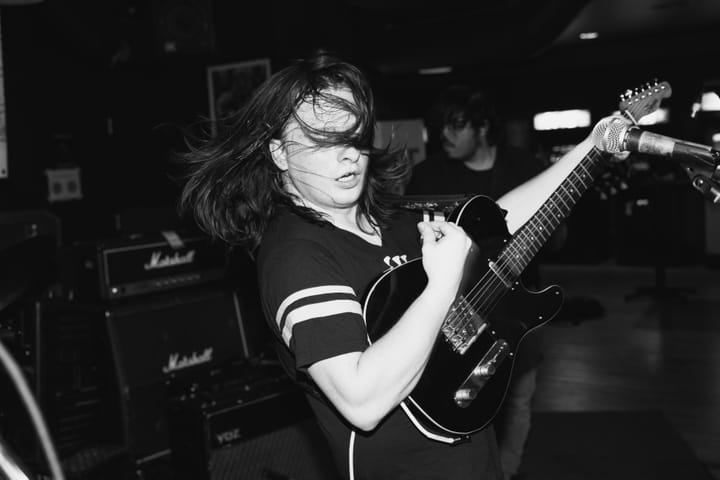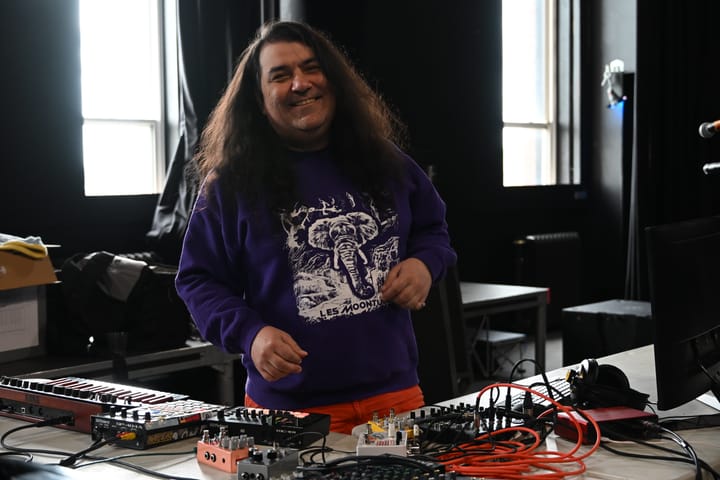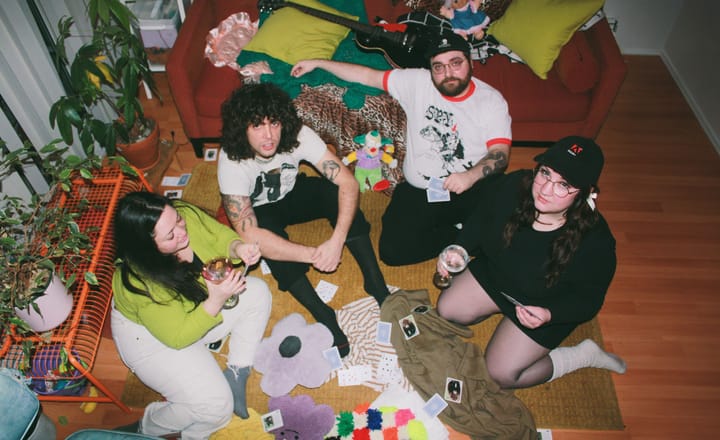
The Power of the Music Fan
In April of 2022, k-pop superstars BTS landed in Las Vegas for a four day residency. This series of shows marked one of the largest-scale events the band and their parent company, HYBE Corporation, had ever attempted, taking over not just the Allegiant Stadium where the boy band was set to perform, but the entirety of MGM Resorts International, in what Billboard called an “urban concert playpark.”
Events like BTS’ takeover of Las Vegas are catered to the artist’s most dedicated fans, whether they are won through contests or paid VIP experiences. Artist teams have been known to select active fans on social media to these private events, and encourage them to post about their experiences. Fans are rewarded with exclusive bragging rights, and in turn, the artist hopefully gets a lifelong fan and promoter of their music.
BTS are just one of many artists who are crafting special experiences for their fans. Of course these events are driven by capitalism, but there is also genuine care for the fans who support the artists. After all, without fan enthusiasm, there would be no artist career. Fan appreciation events are not just limited to kpop music, and initiatives vary from unofficial fan-led scrapbooks to artist pop-up shows to VIP meet and greets and more.
From Beatlemania to Beyoncé's Beyhive, Taylor Swift’s Swifties, and BTS’ ARMY, fans have always been a vital part of the music industry. But more and more, artists, record labels, and live entertainment companies are working in tandem to create such one-of-a-kind “utopic” experiences directed at fans, who hold an increasing amount of power and sway in this relationship. While traditional metrics like streaming numbers, sold-out tours, and chart-topping hits remain important measures of success within the industry, they all fundamentally rely on the dedication and passion of fans.
Historically, this kind of acknowledgement hasn’t always been the case. Though they’ve been reclaimed in recent years, words like “fangirl” and “stan” are still used derisively, even if the love and fervor these fans demonstrate isn’t much different from the mania of sports fans during playoff season. Like any culture or subculture, music fans are certainly capable of questionable behaviour, such as when Lana Del Rey’s fans took her public disagreement with Ann Powers’ review of Norman Fucking Rockwell as permission to doxx and dogpile the music journalist. But when compared to say, soccer hooliganism or flipping a car in the name of your favourite hockey team, criticism toward fans of pop music feels disproportionate and especially gendered.
Some of the world’s biggest groups are boy bands like One Direction, Jonas Brothers, or the Backstreet Boys, who have huge fan bases of young women. Their tastes are often dismissed as superficial, and the amount of energy and earnestness they put into being a fan can be misconstrued as secondhand embarrassment from non-fans. And maybe that’s because it’s hard for some people to see fangirls (in this case, a gender-neutral term), enjoying themselves unabashedly. For teens or marginalized people (such as women, non-binary folks, and people of colour), fandoms have acted as important communities and places of connection.
“I've been a fangirl my whole life and I have no shame in that,” says self-described “professional fangirl” Chelsea Humphreys. “I am not gonna be embarrassed about it anymore. Ok, it’s embarrassing because you’re young and you think you’re gonna marry Niall Horan. But it's fun. You meet new people. You make friends. It's a good time.”
More than just a good time, fandoms act as influential blocs of well organized and digitally-savvy people thanks to social media. Platforms like TikTok, Instagram, and X (fka Twitter), have not only provided fans with unprecedented levels of access to their favourite pop stars, they’ve become sites where fans can communicate, educate, and build power together. Mobilizing on an unprecedented scale, these fans drive viral hashtags, coordinate their own streaming parties, and connect with other like-minded fans across the globe.
This level of solidarity and organization is evident not just in the economic power these fans hold, but in the impact they can have on policy in the public and private spheres. In 2020, following the murder of George Floyd by Minneapolis police, BTS donated $1 million dollars to Black Lives Matter. Within 25 hours, BTS’ ARMY matched their donation through the #MatchAMillion crowdfunding campaign. In 2023, LiveNation temporarily halted taking venue merchandise cuts, a decision influenced by vocal artists like Jeff Rosenstock and Cadence Weapon, who mobilized their fans into action. Similarly, Robert Smith of The Cure actively challenged Ticketmaster to ensure fair ticket pricing for fans. The Ticketmaster issue in North America in particular is an instance where fan dedication and loyalty is being exploited by the industry in ways that create barriers for fans to engage with their favourite artist, while also not financially benefiting the artist either.
Whether it’s organizing to push view counts and streams to record-setting levels, or driving material change in the industry, this kind of fan-driven, organic marketing can't be bought. But it also takes leagues of fans who treat their enthusiasm like a full-time job.
Humphreys recalls a story when she was a young fan. She first joined the fan community on Miley’s World, which was an official paid fan site run by Miley’s team. She made an online friend on that site who she met up with in real life at the Miley Cyrus/Hannah Montana Best of Both Worlds Tour, and the two of them had put together a fan book which caught the attention of Miley’s manager. They were invited by Miley’s manager to have a private tour of the Miley World Tour Bus thanks to the fan book project.
Many passionate fans like Humphreys even end up working in the music industry later, and use the skills they learned and developed as a fan in their professional life — in her case, becoming a digital marketing consultant for artists. Humphreys explains that a conventional job never interested her in school, and her passion for arts and culture naturally led her down a path where she could apply her skills for promotion and media marketing in the entertainment industry.
Although “resume-building” is not usually one of the reasons someone becomes a fan, it’s true that many people gain professional skills such as social media marketing, project management, or community leadership that they can apply to future careers. Fans like Humphreys also simply find fulfillment in helping advance their favourite artists’ career, and if they get special opportunities to interact with their faves, it’s a bonus.
More and more, fans act as unpaid marketers who invest their time, creativity, and resources to promote their music idols. The unpaid nature of that labour highlights the importance of how artists can show appreciation and advocacy for their fan base beyond personal interactions, addressing broader industry practices that affect their supporters. Understanding and acknowledging the value of fan labour is crucial for fostering a more equitable relationship between artists, industry players, and the dedicated communities that support them.
Fans invest emotionally in their favorite musicians, finding personal connections in lyrics and feeling a shared sense of accomplishment when their idols succeed. In return, fans seek acknowledgment instead of payment, which can range from a simple social media reply to a paid meet-and-greet event or a chance encounter. These interactions, no matter how small, can significantly impact fans, reinforcing their loyalty and dedication.
For example, k-pop groups such as Stray Kids will often hold contests for fans to win a video call with their favourite idols. Paramore is known for pulling fans on stage to sing their breakout single, “Misery Business,” at almost every concert. Singers such as Dua Lipa and Billie Eilish hold exclusive listening parties for their new music before its release. Labels and event companies can help artists put together special events such as a music themed cruise vacation. Lady Gaga has been known to buy her Little Monsters snacks while they are waiting in line. While it is not an obligation for artists to take care of their fans, it is certainly beneficial for strengthening their relationships to fans and admittedly, an easy PR stunt.
It can be a challenge for artists to connect with fans when they reach a certain level of stardom because of their limited opportunities to have a personal experience, but there are still creative ways to create a genuine connection between the fan and artist, depending on how much money or time you’re willing to invest.
For example, journalist and fan, Samantha Lui, flew to Las Vegas from Toronto for two of the sold-out shows for the BTS takeover. She fondly describes the experience as a “BTS utopia.”
“There were pop ups for fans to attend, exclusive merch stands, a restaurant doing a whole BTS-themed menu and the Vegas hotels even let fans buy into a fan package to receive exclusive photo cards,” Lui says. “Everything about that trip revolved around BTS with the end goal of seeing the group in concert.”
Events like this can be incredibly fulfilling for fans, whether you’re a beginner or die-hard. You can be involved as much or as little as you want, by buying a ticket or some merch, chatting about the event online or with friends, creating fan art, and more. It’s about the music and the artists, meeting with your community, and experiencing something truly special together.
The shift towards more immersive music experiences such as BTS’ production in 2022 is driven by fans' desire for deeper connections, richer narratives, and a greater sense of community. As k-pop fan Paola Loriggio explains, the immersion and worldbuilding of k-pop was the initial draw for her to becoming a fan.
“Once the pandemic hit I decided to do a deep dive into k-pop because I was interested in learning more and I suddenly had more time,” Loriggio says. “It was like this whole other world and aside from the music and dance; the aesthetics were beyond immaculate. I’m a sucker for good world-building and k-pop does that so well! I think it was a perfect storm of having time and being cut off from outside life and the need to be perceived — I suddenly had the freedom and space to get really immersed in fandom. It really felt like letting myself enjoy something without overthinking why I enjoyed it.”
Outside albums and live shows, immersive events like festivals, themed parties, and fan conventions create opportunities for fans to meet, bond, and share their passion. This sense of community and belonging is a powerful draw, both stemming from and feeding back into itself.
After seeing BTS in Las Vegas, Lui started her own k-pop newsletter called Bunni Pop to fill the gap on well-researched, nuanced pieces on the genre here in Canada. Looking back on the event for her readers a year later, Lui wrote: “Don’t get me wrong, seeing BTS is a complete dream come true. However, I actually look back fondly at all the other things surrounding the big event. The friendships, activities and fun that was had along the way is what I remember the most.”
Even if a fan never gets to meet their idol, through their fandom they have found a lot of ways to connect with likeminded people. They develop real friendships with people from around the world, who they talk with online all the time and plan vacations together around traveling to see their favourite artists in concert.
“That's kind of the beauty of fandom,” says Lui. “It connects people together.”
Read more

Sentries: Multifaceted Noise Rock

Step Into Little Stone Crow's World

